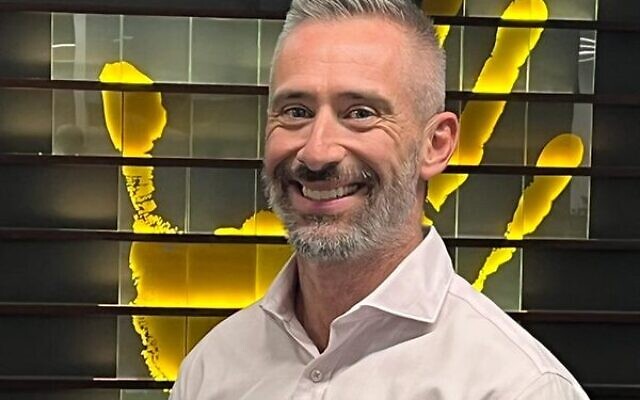It’s time to put our mental health first
'We, at JewishCare will embark on the most ambitious journey'
None of us is immune to knowing someone or experiencing incidents of mental illness and turmoil in our lives. As the CEO of JewishCare, a father of two amazing daughters, one of eight siblings and being in a supportive relationship, I know that sometimes it can be easy to take our mental health for granted; to prioritise other things; to put it off until next week. It can also seem too big and too hard.
Working in the NSW Police Force on the streets of Kings Cross, I saw firsthand what mental illness can do to the lives of our most vulnerable. I have also seen the good that can come from those receiving help and getting their lives back on track.
We know the COVID-19 pandemic has dramatically changed the lives of families across the community and left many adults feeling stressed, anxious and struggling to cope. It has also put the mental health of our youngest and most vulnerable at risk.
I, along with many community members, feel very passionately about this. That passion also stems from being someone who has personally dealt with several mental health conditions in my family. It’s not something I spoke about for many years due to the stigma associated with it.
The idea that mental illness is always visible in how a person acts or carries themselves is invalid. Sometimes it is visible – but sometimes it isn’t. We need to talk about our mental health and make it more visible and known. It’s time to change, and it’s time to put our mental health first.
JewishCare has embarked on a journey to develop a new mental health service that integrates the existing strengths of our current program with meaningful solutions for the community’s unmet needs.
While it’s true that life can bring the unavoidable pain of loss, depression, anxiety, trauma, distress and crisis, a layer of unnecessary suffering often wraps itself around these experiences.
Ironically, this suffering can occur when people engage with the mental health system, where the services meant to help unwittingly create their own brand of avoidable distress and harm.
At JewishCare I am determined to provide a mental health service that removes this avoidable suffering and addresses the core pain that first created the need for help.
While it’s essential that we turn to our experts, best-practice guidelines, and evidence-based interventions to do this, equally as crucial is co-designing our service with the very people we wish to serve.
This is, of course, people with a lived experience of mental illness and their carers. Unsurprisingly, the mental health system harms us most when it ignores the emotional and spiritual experience within the symptoms and diagnosis.
I intentionally use the word “us” to underline our awareness of the universality of mental illness. It does not discriminate based on age, social-economic or professional status. We are all vulnerable to loss, anxiety, depression, crisis and trauma.
Our approach to creating a new mental health service incorporates three core principles: trauma-informed care, evidence-based practice, and lived experience wisdom.
The JewishCare family is passionate about co-designing a mental health service for the community with the community. That is why we held a co-design workshop last month to help us create a new Triage & Intake Proposal. We were delighted to bring together carers, people with lived experience, experts and staff to think deeply about how we can ensure we get our clients the help they need from the moment they reach out to us.
The workshop identified many crucial factors for consideration. This included the importance of weaving peer support throughout the triage and intake experience and giving people something to “hold onto” in the vulnerable moments after they have reached out for care but not yet landed into the safe hands of a treatment team.
Unsurprisingly, given the community’s culture of taking care of its own, we’ve been overwhelmed with support and the desire to help bring a new vision for mental health care to life. While this passion is often the result of pain that has come from poor experiences with the mental health system, we’re deeply appreciative of the opportunity to collaborate with those of us who understand, all too well, what is most needed for an effective, person-centred, compassionate mental health service.
We at JewishCare will embark on the ambitious journey to create a new mental health service that will hold the hands of our community, get them the help they need and, most importantly, we must provide clinical care when it is desperately needed.
Gary Groves is CEO of JewishCare. To get involved in this meaningful project, contact JewishCare chief mental health development officer Talya Rabinovitz: t.rabinovitz@jewishcare.com.au


comments